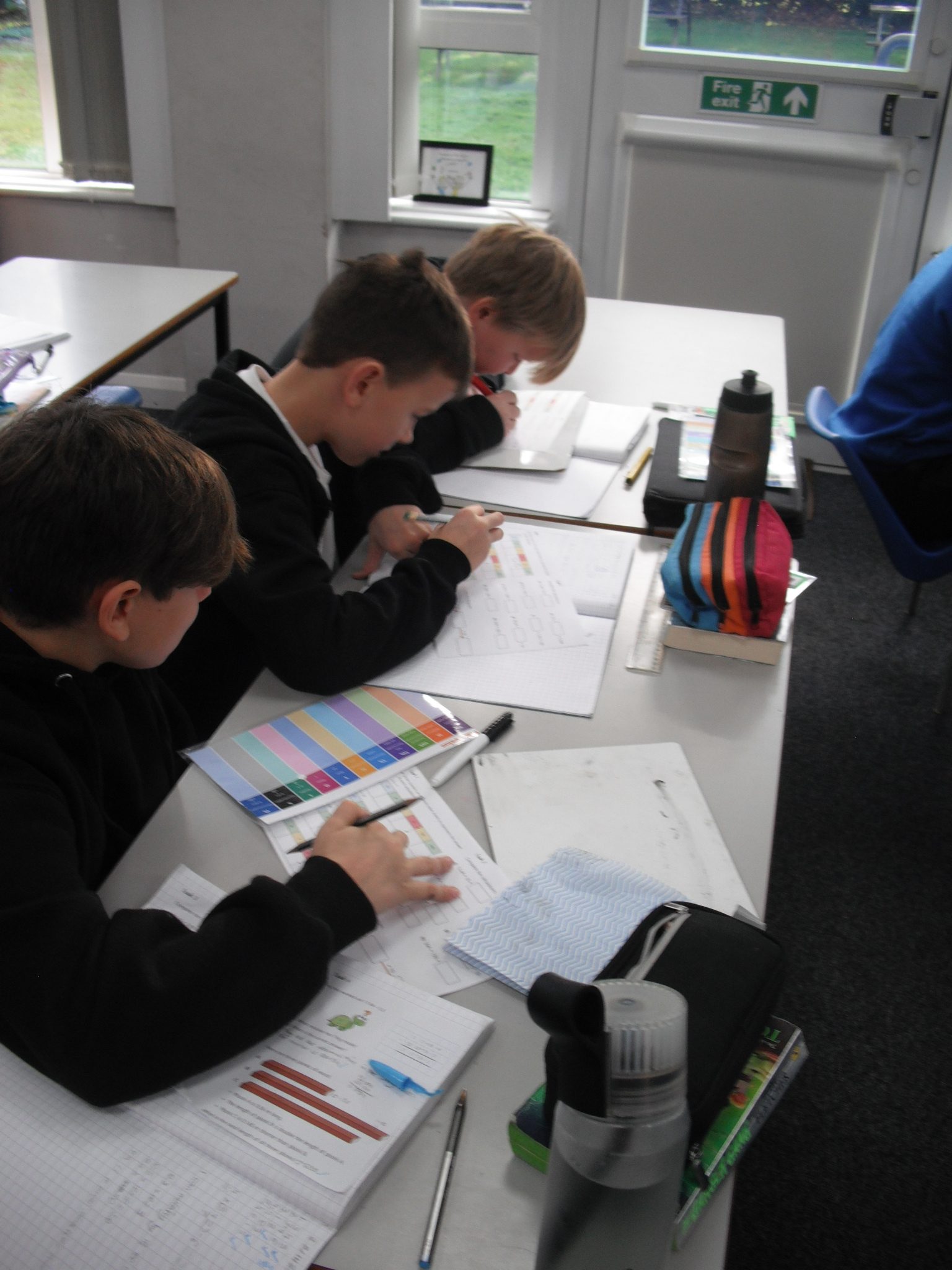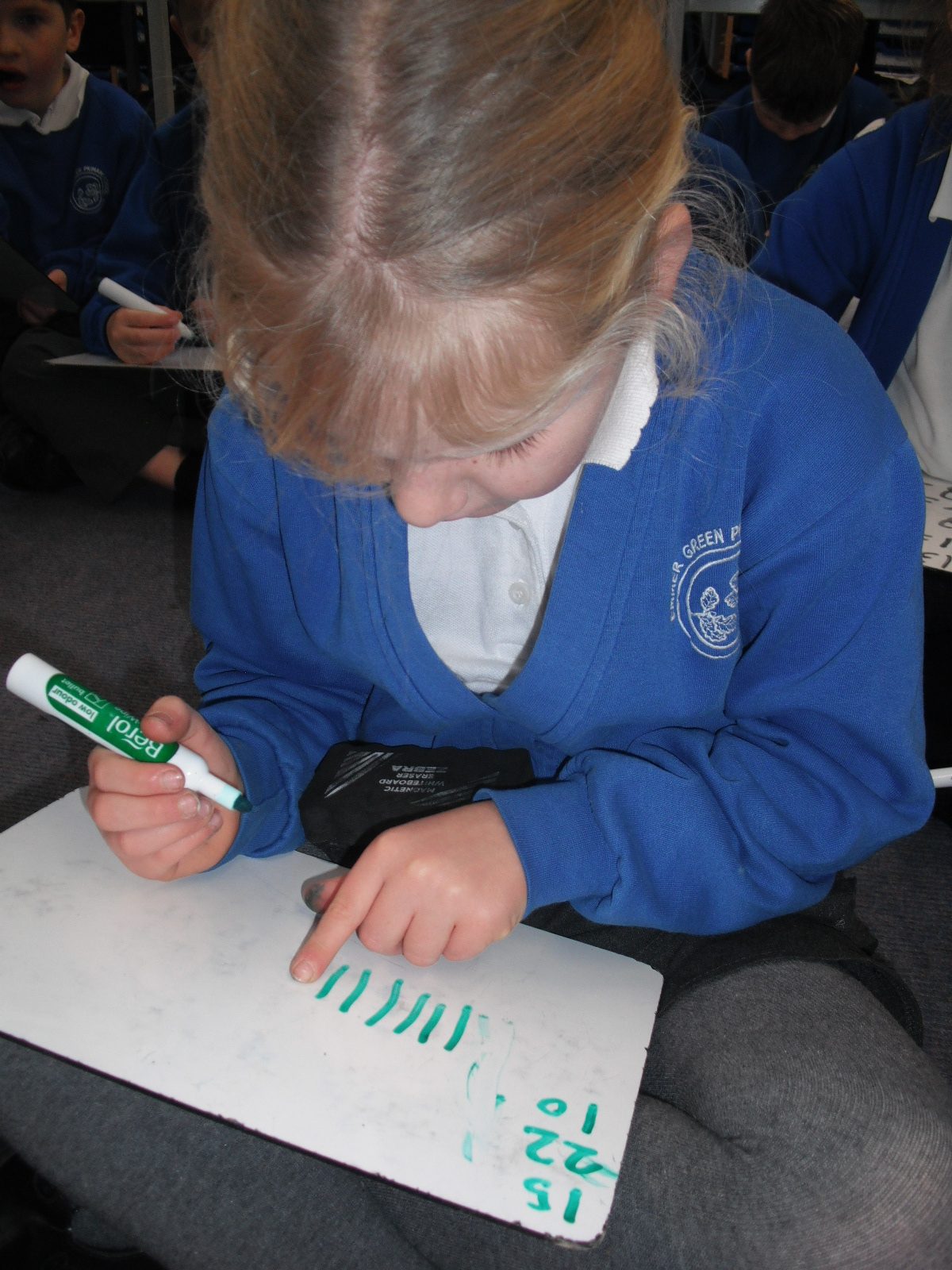Our Approach to Maths
Our Intent
At Emmer Green Primary School, we aim to:
- Support and inspire pupils in becoming capable mathematicians whom have an avid interest in the subject.
- Encourage pupils to be self-motivated and to approach lessons with a ‘can-do’ attitude where the children support each other in their learning.
- Enable pupils to work with independence and tenacity through the use of models, classroom resources and help from their peers.
- Build knowledge and increase depth of understanding by making connections in learning.
- Provide a challenging and engaging maths curriculum where we aim for pupils to achieve high fluency levels with capable and efficient calculation skills.
- Expose pupils to both concrete and pictorial representations to ensure a deep understanding of concepts
- Challenge pupils through daily reasoning and problem solving
- Providing opportunities to apply pupils’ fluency and mathematical thinking in varied ways to build confidence
Implementation
We teach the National Curriculum, supported by a clear skills and knowledge progression shown in the document below. This ensures that skills and knowledge are built on year by year and sequenced appropriately to maximise learning for all children. At Emmer Green, we closely monitor individual groups and year groups so as to provide the most relevant scaffolding and support for them to achieve their potential. Where necessary, adaptations are made to provide the most appropriate curriculum for each group of children.
To see our Progression Map for Maths please follow the link to this page.
How is Mathematics systematically taught at Emmer Green Primary School?
The curriculum is mapped out and sequenced carefully so that Maths units are revisited to deepen understanding and build upon previous knowledge. We also embed daily opportunities to revisit previous learning through ‘Rapid Remembering’ which is a set of questions covering a range of units that the pupils have already been taught in Maths. This supports them in knowing more and remembering more.
We follow the White Rose Maths Scheme to guide our planning and the tasks are completed as a class or independently throughout the school. We have adjusted the sequence of the lessons so that the units are tailored to our school, ensuring that our Maths curriculum underpins learning with logical progression. For example, an understanding of division is needed before fractions.
Scaffolding and mini plenaries are used throughout lessons so that learning is broken down into smaller, more manageable steps. This ensures that expectations are clear and achievable for every child.
We are continually using assessment tools to identify the learning needs of individuals and the whole class. Planning is then adapted where necessary to address misconceptions and secure learning before moving on to the next steps. Pupils are taught with concrete, pictorial and abstract representations to understand concepts thoroughly.
Arithmetic
Children from Year 1 to Year 6 complete ‘Fluent in 5’ daily. This involves children answering 5 arithmetic questions, including the four operations, to build up their basic calculation skills and independence in selecting the most appropriate method. This regular practice enables the children to transfer these skills more easily and efficiently when reasoning, problem solving and answering mathematical word problems. In addition, children in KS2 receive a weekly arithmetic session, separate from the daily Maths lesson, to support them in developing their proficiency of both mental and written methods for the four operations. Please see our Maths Calculation Policy page for more information on the four operations.
Reasoning and Problem Solving
Reasoning and problem solving are integral elements of Mathematics and therefore, we embed it within every lesson so that the children are continuously provided with a richer learning experience and the opportunity to deepen their understanding. Reasoning and problem solving opportunities are presented differently depending on the age group of the pupils and the concept being taught and may be covered during; whole class discussions, partner work and independent tasks. We encourage all pupils to ‘Think, Pair and Share’ so that explaining and justifying their findings becomes habitual.
Vocabulary
We recognise the importance of using the correct mathematical vocabulary associated to the learning objective in every lesson using our ‘Expert Vocabulary’ slides so that the pupils feel confident in using this terminology when demonstrating their understanding. We use sentence stems to put the vocabulary into context which makes it more meaningful for the children. Mathematical vocabulary is also rehearsed and reinforced through aids such as classroom displays and knowledge organisers. Please click here to see the Vocabulary Progression for Mathematics for Reception to Year 6.
Learning Multiplication Tables
Our times tables scheme has been written to systematically teach the multiplication and division facts following the National Curriculum objectives. The aim of the National Curriculum is for all pupils to have a secure and rapid recall of all times tables up to 12 times 12, by the end of Year 4. From Year 2 onwards, pupils practice the designated times tables in school and complete questions in a short test that is timed. This helps to prepare the children for the Year 4 Multiplication Check that takes place in the Summer term of Year 4.
Here are the schemes for Years 2, 3 and 4 for your information. It shows which times table your child is working on during each week of the school year. In Years 5 and 6, pupils continue weekly practice of a selection of times tables and division facts up to 12 times 12, to ensure consolidation and automaticity.
Year 2
Year 3
Year 4
Homework
Mathletics is used for weekly homework in the juniors and is a motivational tool for improving fluency and consolidating concepts. Individual and whole class rewards are celebrated termly in whole school assemblies so that children are acknowledged for their hard work and achievements. In the infants, children receive Maths homework once a week, which is a short task to recap what they have been learning in school.
Impact
Pupils at Emmer Green Primary:
- Are engaged and challenged by their mathematics learning.
- Show confidence and can explain their mathematical learning.
- Think mathematically in their approach to solutions and make links between Mathematical topics.
- Have a deep understanding of the key concepts.
- Demonstrate adept fluency skills and apply them to reasoning and problem solving.
- Use mathematical language correctly.
- Construct well-formed reasoning explanations.


Support for Parents
Further guidance on the methods we use in school and how to support learning at home can be found on our year group pages. For each year group you will find a pre-recorded video alongside a PowerPoint presentation and some useful additional resources.
The year group pages can all be found linked from our Supporting Learning at Home for Maths page.


